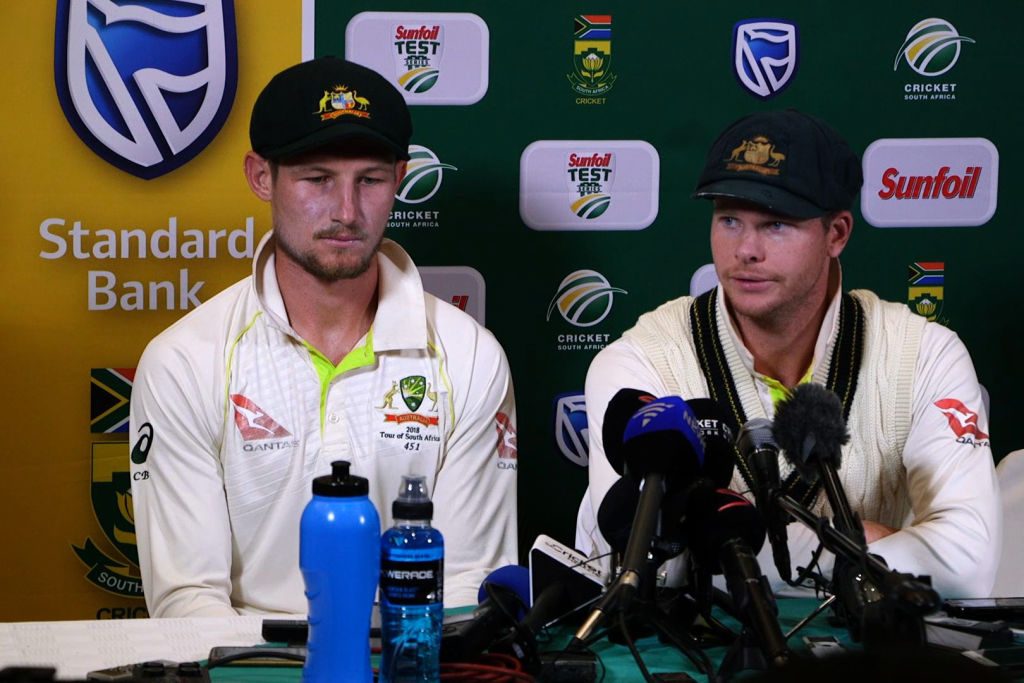
Kumar Sangakkara calls for a new world order to address the “evil” of ball-tampering and the manner in which cricket is played.
Kumar Sangakkara writes every month in Wisden Cricket Monthly magazine. His column is sponsored by Red Dot Tours, the Sri Lanka Travel Specialists
The visual of Steve Smith, captain of Australia, crying in a press conference was hard to watch for me. You were looking at this fantastic cricketer sitting there utterly broken, hardly ably to speak.
It was a very moving press conference. And after I watched it I thought, ‘Yes, the three of them were involved in something quite horrible, but was their failing an isolated incident, for which they themselves are solely responsible? Is Steve Smith the face of ball-tampering? Is this only his failing?’
[breakout type=”related-story” offset=”1″][/breakout]
The more I thought about it, and the more I looked back upon the events that led to this, it was impossible to start from just the South Africa series. I felt that Smith, David Warner and Cameron Bancroft were the fall guys for what’s been going on for the last 30 years of every team that has taken the field.
Yes, they were guilty. They were blatantly caught on camera. But at the same time, over the last few decades, ball-tampering in cricket has been rife. Whether it’s using fingernails, biting the ball, Brylcreem, a Murray Mint, a lozenge, a zipper on your pants – and now sandpaper – ball-tampering is an evil that has got a free pass over that period of time.
[breakout]They were the fall guys for what’s been going on for the last 30 years[/breakout]
The responsibility has to be shared between all the players, captains, administrators, all who have known that this was happening and had seen it, but shrugged their shoulders and said, ‘Well, it’s just part of the game’.
To me, any tampering of the ball, using any of the above-mentioned methods, is the same. And there should have been zero tolerance from all of us. If drastic action had been taken, if concrete measures had been taken in the manner Cricket Australia has done, then maybe we would not be sitting here shocked and troubled, pontificating upon the events that occurred at Cape Town and the sanctions that followed.
[caption id=”attachment_64571″ align=”alignnone” width=”1024″] Cameron Bancroft and Steve Smith address the media in Cape Town[/caption]
Cameron Bancroft and Steve Smith address the media in Cape Town[/caption]
It is a fact that for the officials, ball-tampering is a very hard offence to prove. However, in the wake of the harsh sanctions, there seems to be renewed interest from everyone, from all stakeholders – including the ICC, the home boards, the fans and the players – to readdress the issue of ball-tampering, to see how it can be stopped and stopped for all time.
At least we have a starting point. But it is vitally important that we understand the history and the context of ball-tampering. It cannot be done just by rules and regulations alone. It has to have the wholehearted participation of the players themselves. Players, through their captains and their home boards, must commit unequivocally to safeguarding the aspect of the game that, although abstract, everyone holds dear: and that is the spirit of cricket.
[breakout]Players must commit unequivocally to safeguarding the aspect of the game that, although abstract, everyone holds dear: and that is the spirit of cricket[/breakout]
While CA’s sanctions seem to be a reaction to this huge backlash from the Australian public, they also need to dig deeper to ask if this was also the result of a cricketing culture in Australia that is not quite healthy. The Australian public, the players and the administrators hold the Baggy Green in the highest respect. They now, especially after the establishment of the Big Bash, and in view of the threat to Test cricket, hold absolutely sacrosanct the trust and love of the public. In Australia, inter-generational support for cricket is paramount.
[breakout type=”related-story” offset=”0″][/breakout]
And the love that young boys and girls have for the game is key to its sustainability into the future. Therefore it may be that these harsh sanctions, and the sacrificing for a limited period of time of two of their greatest players, is a small price to pay to ensure that public trust is upheld.
As a past player, I feel that a lot more needs to be done by the entire cricketing fraternity when it comes to this particular issue. It may be that an ICC representative, the chief match referee, the head of the umpires committee along with a few of the best umpires, a representative of the MCC and the cricket technical committee, and of course the captains, all need to sit down at the start of a season and make a commitment to identify the issues that need to be addressed and the manner in which the cricket, for that particular year and season, is to be played.
[breakout type=”related-story” offset=”2″][/breakout]
And then at the end of that year, another meeting: to reassess, to reevaluate, to commit again to the values they all hold dear and are responsible for upholding. To say, ‘Listen guys, this is how we’re going to play the game. These are the issues we’ve had and this is how we sort them out. And as captains, you guys are responsible’.

RELATED READ:
https://www.wisden.com/stories/international-cricket/scraping-away-seams








